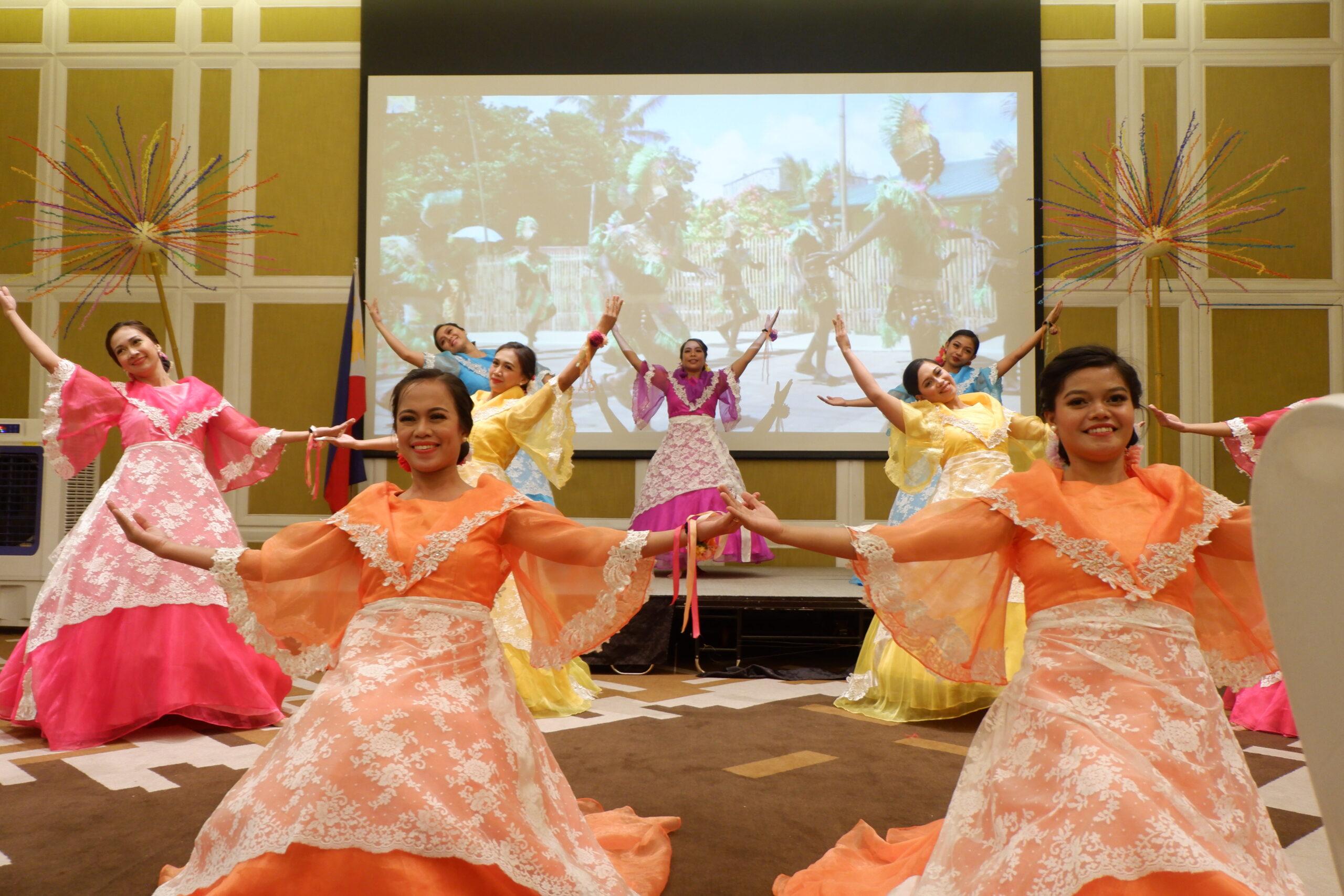“Common good, which is the ultimate end of society, ang huling dapat kahantungan ng sambayanan bilang sambayanan.”
This was just one of the many insights from Palawan Governor Victorino Dennis Socrates that resonated deeply with participants at the onset of the Institute for Solidarity in Asia’s (ISA) 29th Governance Boot Camp: Basic Class (BC29) held at the Philippines’ “Princess City in the Last Frontier”, Puerto Princesa, Palawan.
Held last March 12 to 15, 2024 at the Hue Hotels and Resorts, BC29 brought together 94 delegates from 17 organizations, just a few people shy of its largest attendance record set in Iloilo in 2021 for ISA’s 21st Governance Boot Camp, which saw 120 delegates.
Co-hosted by the Provincial Government of Palawan, the Provincial Government of La Union, and the Department of Health, the event began with a keynote address from Governor Socrates, where he reminded participants of their shared responsibility as public servants, irrespective of their roles and offices across the country.
“The duties of government workers are already practically spelled out by existing laws and regulations, but it is good to consider that the primary objective of government is to promote justice. Not just the justice of sending criminals to jail, but of ‘distributive justice’—of making sure that everybody gets what is due him from the collective,” Governor Socrates said.
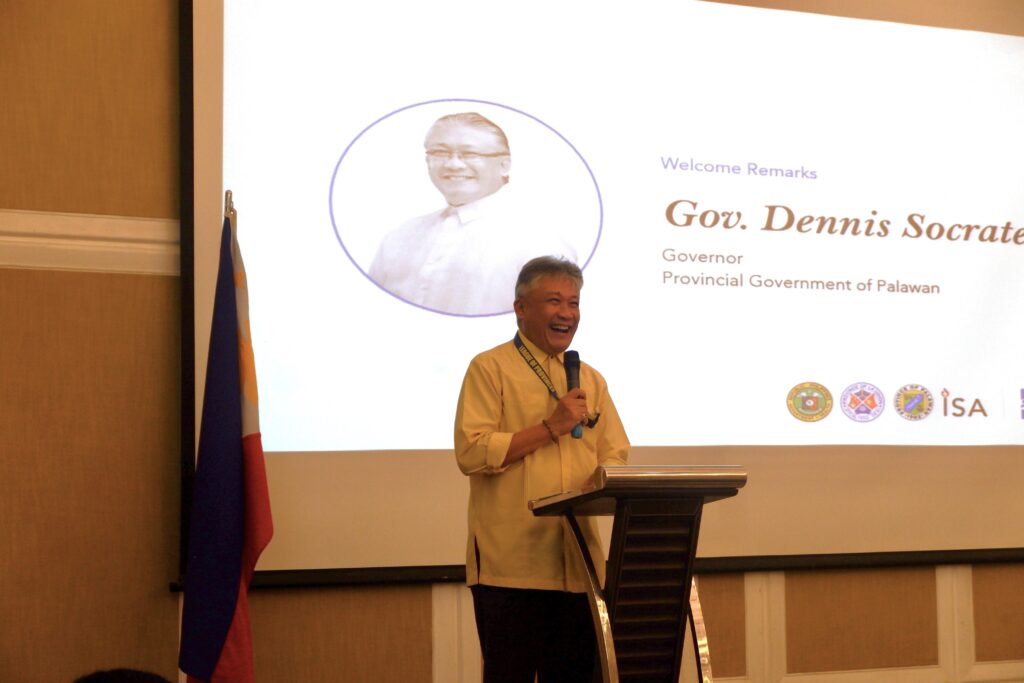
Despite the challenges hindering good governance for the common good, Governor Socrates expressed optimism about achieving this goal, noting ongoing improvements across the public sector.
“From a historical perspective as a Sambayang Palawenyo and as a Filipino nation, though there is still much room for improvement, we have been and are moving up on an inclined plane in terms of understanding, articulating, and actualizing ‘good governance’,” he said.
Expanding on this, the first day of BC29 featured a compelling lecture by ISA’s Founder and Chairman Emeritus, Dr. Jesus P. Estanislao, called “Building our Dream Philippines.” Drawing on his experience as the former Secretary of Finance of the Philippines in the early ‘90s, Dr. Estanislao guided participants through a reflection on the alarming poverty incidence in the country, which has recently reached 45%, and the shift in perception from neighboring ASEAN countries towards our nation’s progress.
“If we do not take care, we will be permanently left behind,” Dr Estanislao stressed.
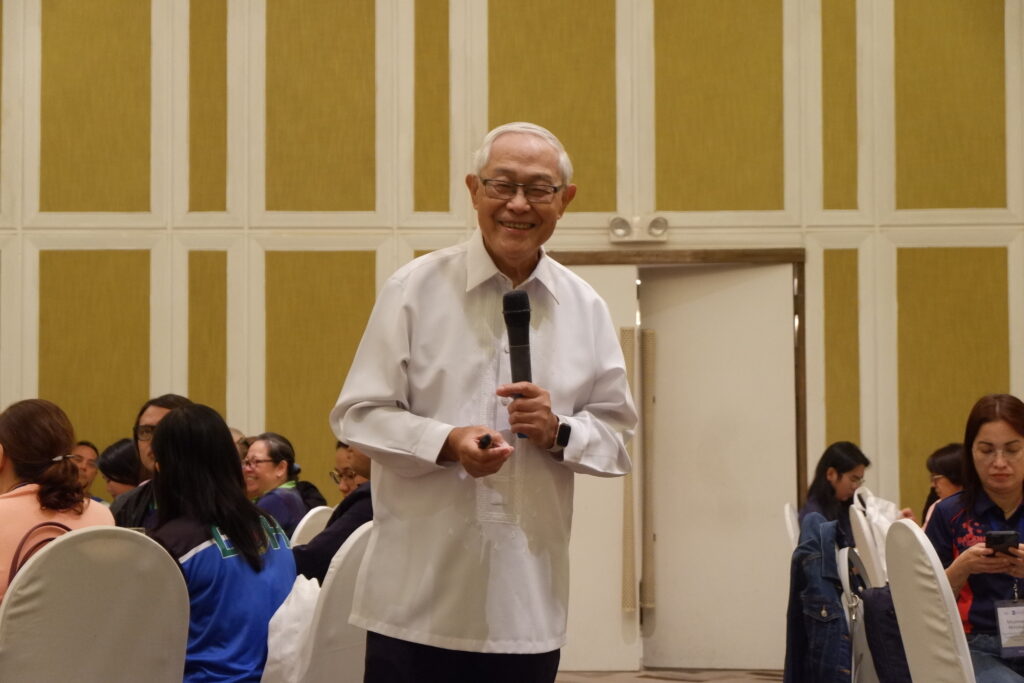
He then identified poverty, corruption, and a lack of social concern as the three ills of society, describing them as “deep-rooted, deep-seated, and mutually connected with one another”. Combatting these challenges requires governance that demands practicing public servants’ long-term thinking, strategic action, and comprehensive solutions.
“To make a difference, you should say, these three are one. No president can be the knight and shining armor of the country without the participation of the citizens,” he said.
Following this, participants engaged in a module delivered by Mr. Christian P. Zaens, ISA’s Executive Director and Practice Leader of the Performance Governance System (PGS), ISA’s governance framework. During his presentation, he explained that crafting a strategic plan requires identifying the impact, position, core, and supporting processes within an organization. Additionally, Mr. Zaens underscored that the PGS is a dynamic framework adaptable to the specific requirements of each institution.
When it comes to the Strategy Map, he said that the objectives for both core and support functions must be specific and actionable, rather than generic statements. They should clearly reflect the intended upgrades and transformations within the organization, providing stakeholders with a tangible sense of the changes underway.
“Stakeholders should get an idea of what transformation is happening,” he said.
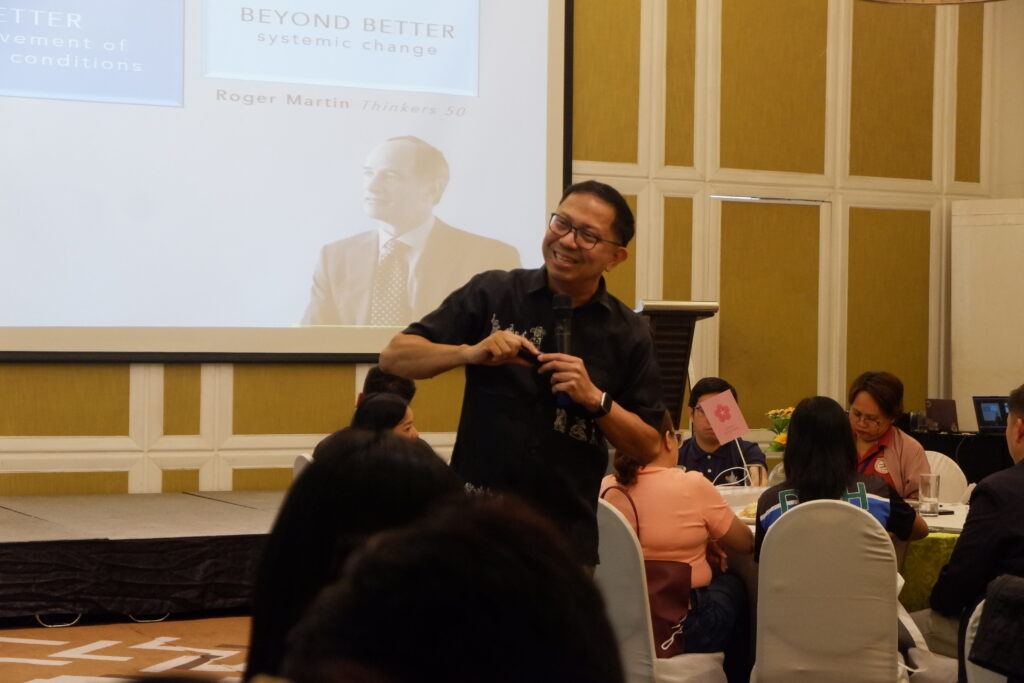
During the second day of the Boot Camp, Mr. Zaens further explored the significance of Disciplined Execution, which requires addressing Depth, Breadth, Subsidiarity, Engagement, and Accountability. He discussed various facets involving Depth and Breadth, with the former involving operating units, support units, and individuals within the organization, while the latter encompasses planning and budgeting, performance appraisal, rewards and incentives, quality management, and risk management.
He then explained that engagement entails fostering an emotional commitment among employees towards the organization and its objectives, promoting a sense of ownership. Meanwhile, accountability ensures that both units and individuals are consistently held responsible for their strategic contributions. On the other hand, subsidiarity empowers lower-level units to autonomously select their goals and determine the methods to achieve them.
Following this was a module called “Beyond Cascading” which featured the Dr. Paulino J. Garcia Memorial Research & Medical Center’s (PJG) journey in adopting the PGS framework and its transformative impact on the organization. PJG’s Office for Strategy Management Head, Dr. Rene Francisco, highlighted the major challenges faced by the hospital, including pessimism, indifference, and resistance to change, which were addressed through strategies such as promoting a “can-do” attitude. The lecture also emphasized significant shifts in organizational management, working culture, and growth paradigm, leading to enhanced strategic positioning, collaborative work environments, and outward-focused approaches.
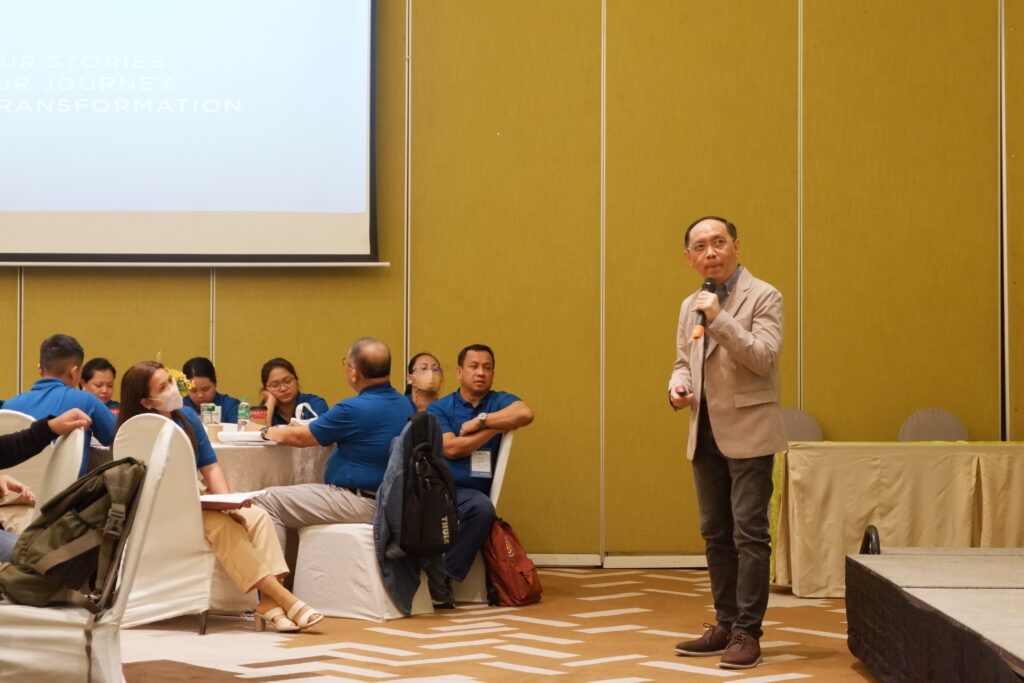
Furthermore, Dr. Francisco discussed the comprehensive PGS cycle, which involves creating governance documents, communicating strategy, capacitating people, and celebrating excellence, ultimately leading to breakthrough results such as improved performance, innovative initiatives like PJG TeleHealth, and legislative achievements like Republic Act 11704, which increased the hospital’s bed capacity.
As the day drew to a close, delegates enjoyed an evening of entertainment and networking at the BC29 Solidarity Night, themed Flowers and Blooms, inspired by Palawan’s Balayong (local cherry blossom) Festival. The event showcased Governor Socrates’ musical performance, a traditional dance by the Palawan Dance Ensemble, and spontaneous karaoke sessions from the delegates themselves.
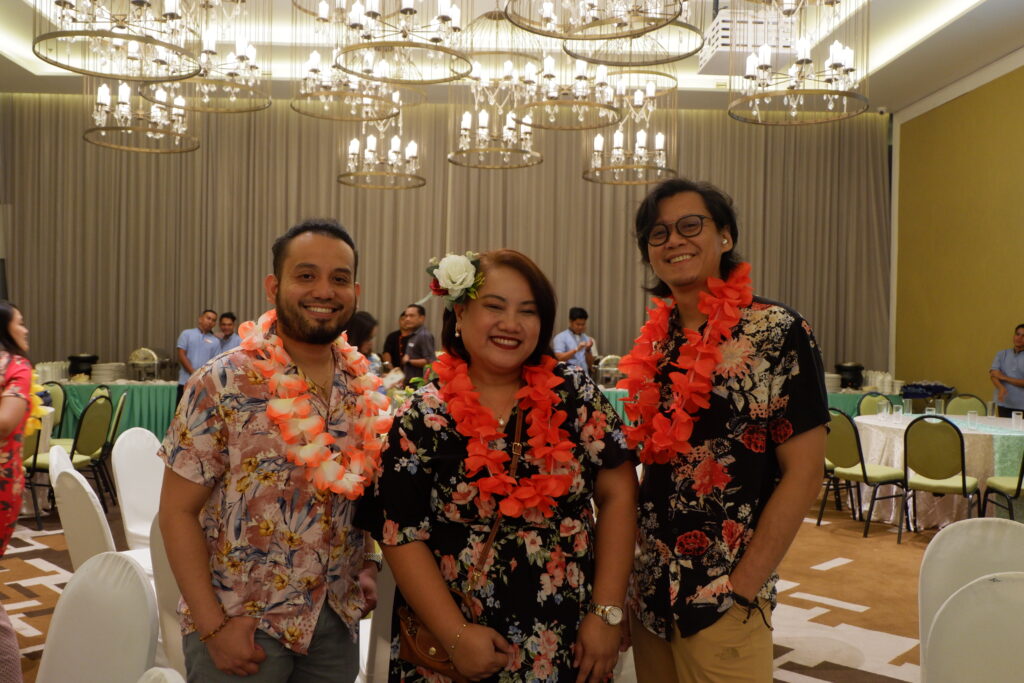
The last day of BC29 featured three exemplary organizations representing the PGS Movers: the Philippine Veterans Affairs Office (PVAO) for the Office for Strategy Management (OSM), the Department of Health (DOH) for the PGS Core Team, and the Eastern Visayas Medical Center (EVMC) for the Multi-sector Governance Council (MSGC).
Mr. Mark Solis, Planning Officer at PVAO, outlined the journey and achievements of the PVAO, whose mandate is to empower veterans and inspire future defenders. The PVAO’s OSM fulfills four key roles: Initiatives Manager, ensuring smooth project implementation and collaboration with stakeholders; Scorecard Manager, evaluating performance metrics and recalibrating strategies as needed; Alignment Manager, ensuring strategy alignment with national policies across all units; and Resource Manager, optimizing resource allocation for efficient utilization. Breakthroughs include legislative victories, improvements in the veterans’ medical care, and the development of tourism enterprises.
Meanwhile, Mr. Miguel Deanon, representing DOH Undersecretary Kenneth Ronquillo, discussed the PGS Core Team of the DOH, which comprises 17 members of the DOH Executive Committee. Their functions include setting the direction for the DOH and Operational Clusters, managing DOH unit performance, and championing the strategy to stakeholders. Challenges faced by the team include navigating the COVID-19 pandemic’s impact on Universal Health Care (UHC) implementation and addressing leadership transitions. To address these, their strategies involved leveraging the pandemic to expedite initiatives, maintaining strategy champions despite leadership changes, and ensuring integration of new leadership directives through PGS mechanisms.
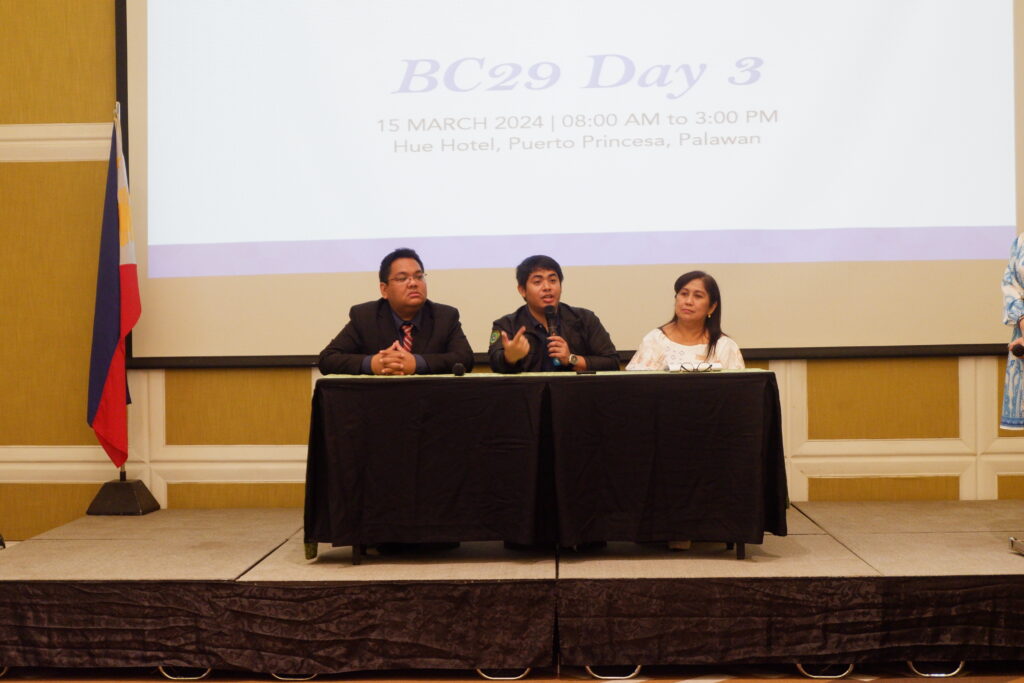
Dr. Jenny Lesiguez, Head of EVMC’s OSM, shared that an essential element embedded in the PGS framework is the creation of its own MSGC, a network of external stakeholders supporting public institutions towards its strategic goals. The MSGC has been instrumental in advancing healthcare excellence in Eastern Visayas, with their contributions ranging from championing the passage of R.A. 11567 to funding crucial research endeavors of residents. EVMC also introduced Project Tambal, which ensures patients receive a full set of discharge medications, including antibiotics and other vital medicines. The initiative, standing for “TAkehome Medications Benefit Assistance Link,” was made possible through collaboration between EVMC and its MSGC partner, Tingog Partylist, with Congressman Jude Acidre leading the effort to secure funding and bring the project to fruition.
The BC29 came to a close with the announcement of the winning group, Team Sunflower for All Seasons, and the recognition of Atty. Bea Suan-Aying from the City Government of Mandaue as the BC29 Ultimate Governance Warrior.
In his closing remarks, ISA CEO Mr. Evaristo S. Francisco delivered his closing message, reminding the participants that completing the Boot Camp is only the beginning. He highlighted the importance of collaboration in pursuing change, likening it to the nurturing environment needed for flowers to bloom.
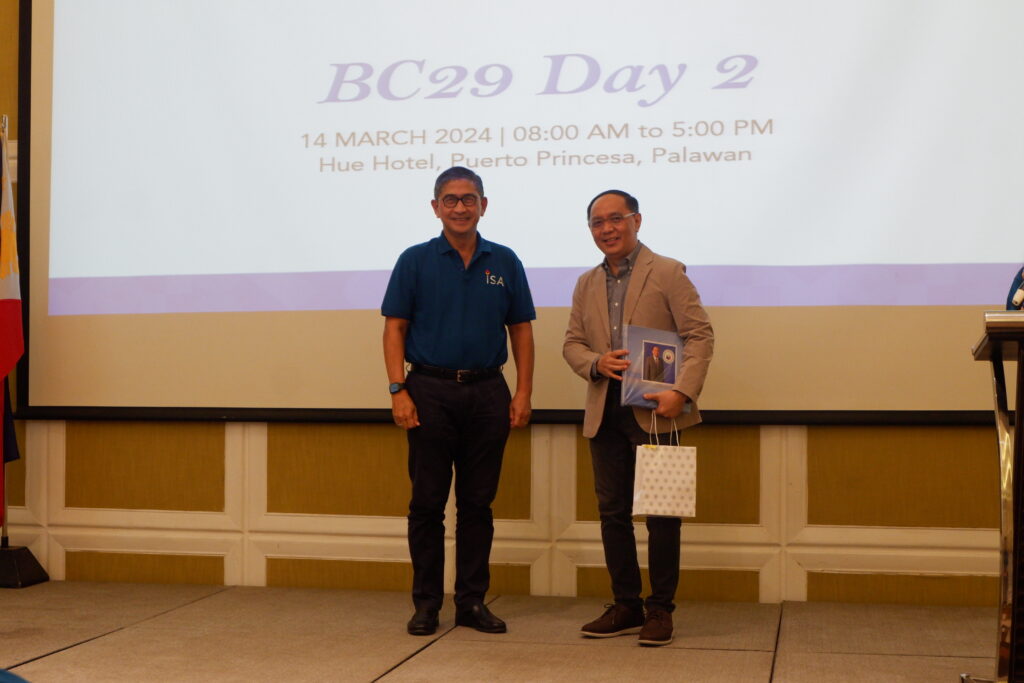
“As we return to our respective roles, equipped with recently acquired knowledge and a strengthened network, may you be reminded that pursuing change is a dream that thrives on collaboration, just like flowers needing the proper care and environment to bloom,” Mr. Francisco said.
“Confront challenges with an eagerness for growth; extract valuable lessons from setbacks; and genuinely revel in each triumph encountered on the journey, whether big or small.”

